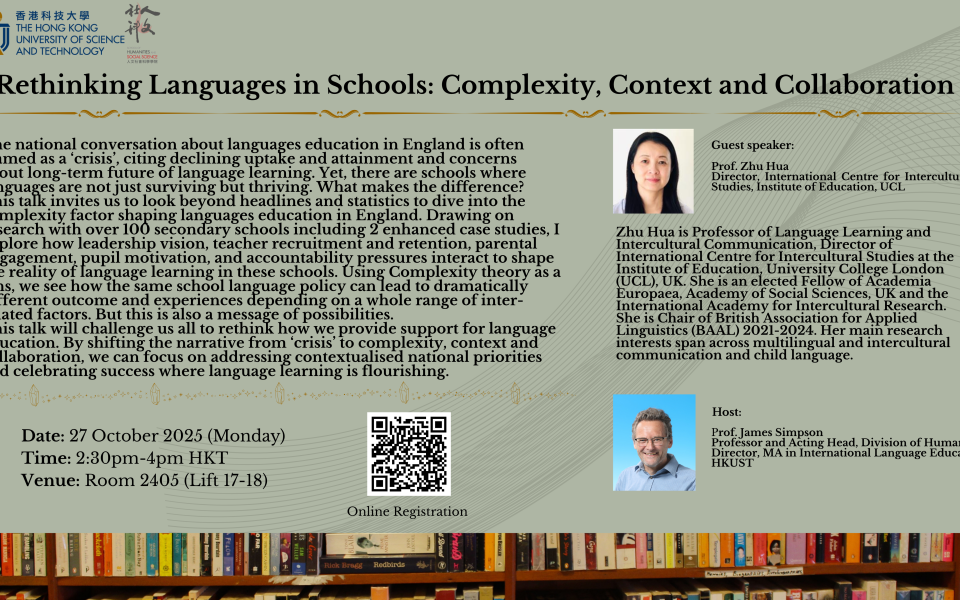Abstract
The national conversation about languages education in England is often framed as a ‘crisis’, citing declining uptake and attainment and concerns about long-term future of language learning. Yet, there are schools where languages are not just surviving but thriving. What makes the difference? This talk invites us to look beyond headlines and statistics to dive into the complexity factor shaping languages education in England. Drawing on research with over 100 secondary schools including 2 enhanced case studies, I explore how leadership vision, teacher recruitment and retention, parental engagement, pupil motivation, and accountability pressures interact to shape the reality of language learning in these schools. Using Complexity theory as a lens, we see how the same school language policy can lead to dramatically different outcome and experiences depending on a whole range of inter-related factors.
But this is also a message of possibilities. By recognising schools as living, complex, adaptive systems, we can move away from one-size-fits-all approaches and work together to design context-sensitive strategies that truly meet schools where they are. Collaboration between schools and with higher education institutions will be a key to building stronger, more sustainable language provision.
This talk will challenge us all to rethink how we provide support for language education. By shifting the narrative from ‘crisis’ to complexity, context and collaboration, we can focus on addressing contextualised national priorities and celebrating success where language learning is flourishing.
Biography
Zhu Hua is Professor of Language Learning and Intercultural Communication, Director of International Centre for Intercultural Studies at the Institute of Education, University College London (UCL), UK. She is an elected Fellow of Academia Europaea, Academy of Social Sciences, UK and the International Academy for Intercultural Research. She is Chair of British Association for Applied Linguistics (BAAL) 2021-2024. Her main research interests span across multilingual and intercultural communication and child language.
